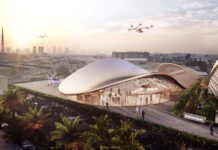By Katherine Azmeh www.kippreport.com
This isn’t going to be a very popular suggestion – especially not in the car-loving Emirates. But like it or not, there is a very serious argument to be made for the UAE government hiking the cost of fuel sold on the domestic market.
 The price of both petrol and diesel was raised by 11 percent earlier this month, although fuel costs still remain far below international averages. The increases were an attempt by the government to reduce the burden of fuel subsidies on some oil companies. Dubai’s major refiner, ENOC, says that it loses money on domestically sold petrol whenever crude prices exceed $45 a barrel, and economists warn that consumers are wasteful when prices are excessively low.
The price of both petrol and diesel was raised by 11 percent earlier this month, although fuel costs still remain far below international averages. The increases were an attempt by the government to reduce the burden of fuel subsidies on some oil companies. Dubai’s major refiner, ENOC, says that it loses money on domestically sold petrol whenever crude prices exceed $45 a barrel, and economists warn that consumers are wasteful when prices are excessively low.
Clearly, an 11 percent price hike is far from outrageous, but the extra few fils per liter might just be the incentive needed to get the ball rolling in a gradual upward movement in fuel prices. Many drivers will see this as both inevitable and undesirable – but higher prices will have strong benefits, too.
For government subsidies represent a burden on the economy and encourage wasteful consumption. Rising petrol prices would reduce the impact of this, but also offer another happy outcome: It would encourage residents to use public transport, and help diversify the economy.
In the same way that Cuba makes serious money by exporting all those legendary Montecristos, perhaps the UAE government envisions its relation to oil in a similar light: reducing domestic reliance, as it profits from its sale on the world market.
The government should wean the public off petrol subsidies and begin the gradual upward correction in petrol prices. At the same time, UAE residents should begin rethinking their transportation habits and avail themselves of the comfort and affordability of the existing and planned mass transit systems.
Dubai Metro is a shining example of forward-thinking city planning. The multi-billion dollar system can help address the transportation needs of Dubai’s growing population, serving visitors, reducing traffic congestion, and preserving the great lifestyle that residents enjoy.
Failure to incentivize the public towards embracing such transit systems will impact negatively on tourism, quality of life, fiscal responsibility, oil company solvency, and environmental stewardship.
And if you need more convincing, consider a visit to Beirut. Access to well-run, organized and affordable mass transit would be transformational for the quality of life in an otherwise lovely city.


















